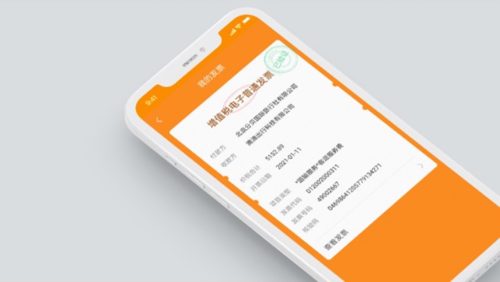China Fintech Today: A new column about China’s financial technology sector


This is the first of a biweekly roundup of news from one of the most innovative sectors of the Chinese economy: financial technology, or fintech. China is where some of the most exciting advances in finance — from blockchain to big data — are occurring; it also has the world’s most advanced cashless economy. China Fintech Today is written by Sara Hsu, associate professor of economics at SUNY New Paltz. She is a specialist in unseen financial flows, sustainable development in Asia, and the Chinese macroeconomy.
All links and information sources are Chinese media reports, websites, and social media posts. Much of it is bad news, but note the optimistic views at the end!

Fintech funding is scarce and weak players are dying like flies
2018, a boom for fintech IPOs, a bust for secondary market fundraising
2018年金融科技上市公司数量超前三年总和,二级市场募资规模骤降七成 / Jiemian
Twelve Chinese fintech companies listed this year in the U.S. and Hong Kong, more than the total of the previous three years. However, post-IPO stock prices almost uniformly declined, and secondary market finance decreased by 70 percent.
The valuation of fintech companies has also shrunk over the course of 2018, with the market value of leading players Xinfu and Yirendai declining over 70 percent, while Zhongan Online and Weixin Jinke dropped over 60 percent. Analysts blame negative market sentiments in the U.S. for the grim numbers; however, many fintech experts in China remain positive about the industry.

Guangzhou approves policies to promote fintech
“万金油”不管用了?监管已开始划定金融科技边界 / Sina
The Guangzhou city government has approved a set of guidelines with the aim of promoting fintech. The guidelines clarify what institutions are allowed to participate, including financial institutions and financial service enterprises, as well as organizations that carry out fintech research and development.
In the document, financial technology is defined as technology applied to finance that brings innovation to new media and platforms, including the internet, cloud computing, big data, blockchain, and artificial intelligence. Beijing also recently published the Beijing Promotion of Financial Technology Development Plan (2018-2022), which outlines the boundaries of the fintech industry and aims to further develop this sector.

Winter is already here for P2P lending
P2P状况调查:挺过暴雷潮与合规检查后 春天还会远吗 / Caijing
In 2018, the growth of China’s peer-to-peer (P2P) lending sector dramatically reversed. 1,407 internet platforms that offered P2P lending services shut down due to increased regulation between July 2017 and June 2018. That bloodbath destroyed more than half of the existing players in the sector.
Some of the credit held within the P2P lending sector has been returned to the banking system. As the industry faces uncertainty in terms of further regulation, stock prices have declined. Since September 2018, many P2P lending platforms are carrying out “self-inspection, on-site inspection and administrative inspection” to fulfill the new regulatory requirements. The administrative inspection is an arduous process involving an external accounting and legal team auditing all transaction data.

Shanghai home renovation loan platform shuts down
装修11万贷款27万 “装修贷”风险需注意 / Sohu
Youjuke.com, a website offering loans to Shanghai homeowners for renovations, has gone bankrupt and shut down. The company has loan assets totalling several hundred million RMB.
The business model of Youjuke.com, like several other startups, was to act as broker between banks and consumers to offer loans, and then earn a commission from home décor companies. However, management problems and poor risk control have led several companies in the sector to bankruptcy. In addition, consumer complaints regarding this new business model have surged: many borrowers say they were tricked into taking out loans they cannot afford to repay, and then experienced downgrades in their consumer credit.

Online lending: four major indicators down for first time in 11 years
网贷四大指标11年来首次同比下降 年内超1200家退出 / Zhongxin Jingwei
Four major indicators for the online lending industry declined for the first time in 11 years. Online loan turnover, number of platforms, loan balance, and number of participants all declined. Loan turnover was down by 50%, while the number of platforms was reduced by 44%. Loan balance was down by 30%, and the number of participants fell by 8%. Hú Ěryì 胡尔义, head of the China Internet Finance Association Statistics Committee, stated that the online loan industry had reached an inflection point because the industry lacked sufficient quality and competence among credit intermediaries.

Major fintech players talk down fin and play up tech
互金企业“换位”:让金融的归金融 科技的归科技 / Securities Daily
Major players in the Chinese fintech industry are de-emphasizing their financial orientation and playing up their technology prowess. Ant Financial announced it would position itself as a “techfin” company. Jingdong Finance has changed its name to Jingdong Science in order to reduce the focus on its financial assets. The reason: government supervision of the fintech sector is tightening. By contrast, tech companies have easier access to markets and are able to obtain higher valuations than financial companies.

Cancer coverage wins best online insurance award
安心保险产品荣获年度“杰出互联网保险产品奖” / Consumer Daily
Anxin Insurance won an annual award for Outstanding Internet Insurance Product at the 2018 Financial Leadership Annual Awards Ceremony in Beijing. Anxin’s medical insurance scheme covering cancer won the award for best online insurance product. The product covers the cost of cancer diagnosis and treatment. Chén Guózhèng 陈国正, Sales Director of Anxin, said that the product has been successful because it is cheaper, has a higher age limit for underwriting (70 rather than the industry standard of 60), and has a high amount of protection. In addition, some common diseases can also be insured. Chen also noted that positive word of mouth was an important factor.

Tencent, IFC, and KKR invest in fintech startup in the Philippines
阿里、腾讯支付战蔓延菲律宾 计划覆盖半数人口 / Global Times
Tencent Holdings, IFC, and U.S. private equity firm KKR took part in the first round of funding for Voyager Innovations, a fintech startup in the Philippines. Voyager offers a payment application called PayMaya. Tencent, KKR, and IFC acquired over half of the firm’s shares.
Tencent and Ant Financial have expanded their competition overseas. Last year, Ant Financial purchased a 45% share in Mynt, which offers GCash, an app that rivals PayMaya. GCash has installed QR codes in 30,000 locations, and the company hopes to cover 1 million merchants in the next five years. Tencent has a similar goal for PayMaya.

2019: a better year for Chinese fintech?
互联网金融嬗变 / International Finance
Some observers are highly optimistic about the consumer internet finance industry in 2019. Xuē Hóngyán 薛洪言, director of the Internet Finance Center of Suning Financial Research Institute, believes that consumer-driven growth will continue, fueling a rise in internet consumer finance.
Xue says consumer financial institutions in first- and second-tier cities should focus on lending for education, entertainment, tourism, and housing, while those in third- and fourth-tier cities should focus on lending for “consumption upgrade.” Lǐ Wànfù 李万赋, a financial analyst at 360 Data Research Institute, also believes the consumer finance industry will expand through the new year. He predicts that the industry will reach a young consumer base while better controlling risks.
China Fintech Today is a biweekly column on The China Project.





